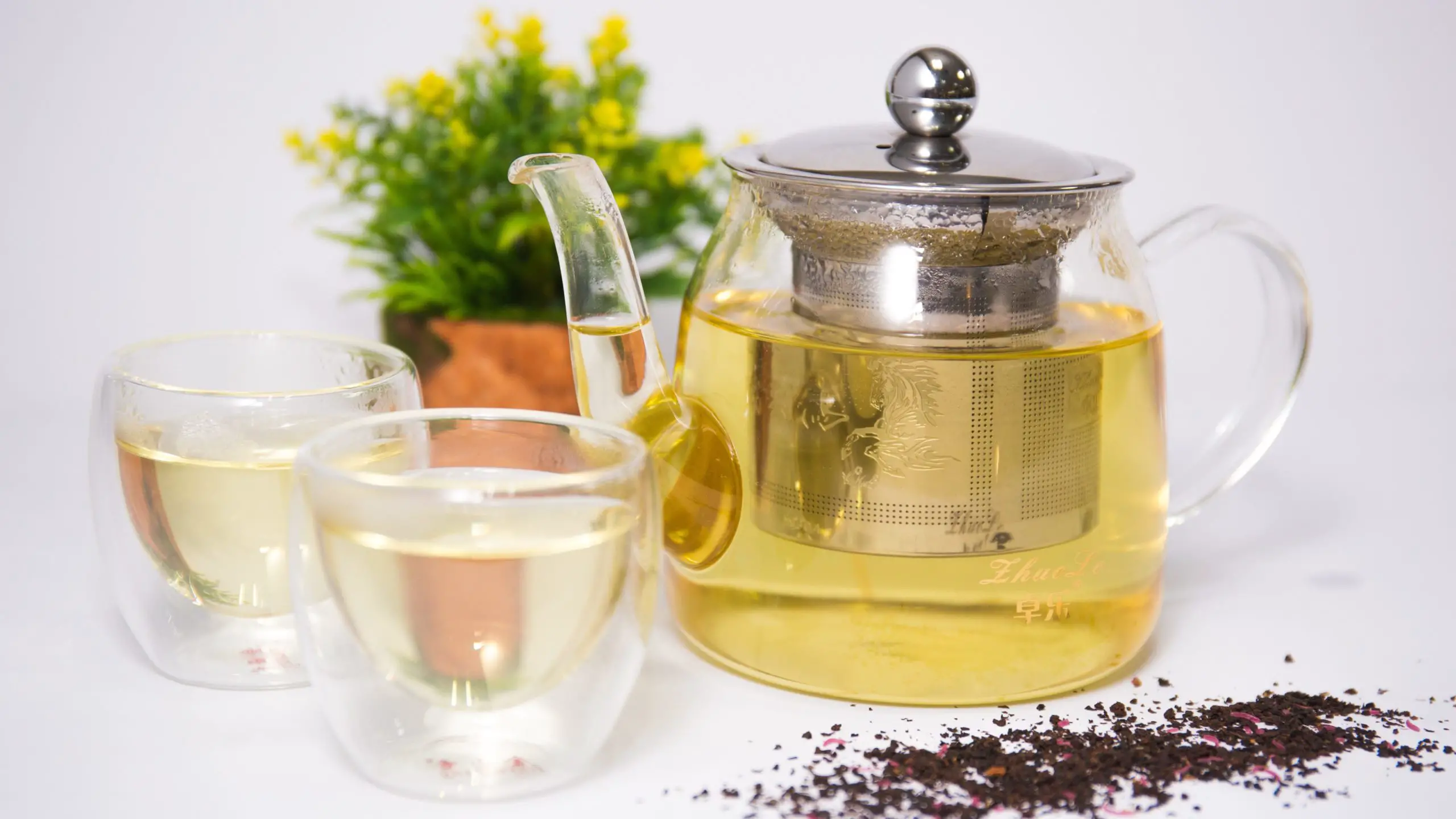British people are known for their love of tea, so it makes sense that there are so many interesting tea idioms, sayings and phrases in the English language.
Take a look at our English idioms page for a full overview, but for now, put the kettle on and enjoy a brew.
By the way, a ‘brew’ is a predominantly British slang term for a cup of tea. The same is true for ‘cuppa’, which is a concatenation of ‘cup of’ (as in ‘cuppa tea’).

Tea idioms
A storm in a teacup
If there is great fuss, outrange or commotion about something that is small or insignificant, it could be described as a storm in a teacup.
“I really don’t know why he got so upset. It was all a bit of a storm in a teacup if you ask me.”
This one appears on our list of weather idioms, too.
All the tea in China
Tea idioms come in all shapes and sizes and this phrase basically means a large amount of something valuable, like money. People drink a lot of tea in China, so to say you wouldn’t do something for all the tea in China means you would never do it, no matter the amount of money on offer.
“I’m simply not doing the job, not even for all the tea in China!”
Not my cup of tea
If you just don’t like something or someone, try this tea-related expression: not my cup of tea.
“I’ve never liked horror movies. They just aren’t my cup of tea.”
“Beverley loves Korean food but it’s not my cup of tea.”
This idiom can be used in the affirmative too, but this is less common.
“Ooh you baked a lemon cake! Lovely, just my cup of tea.
You can find some more food-related idioms here.
Tea leaf
This tea expression is something you might hear from British people, especially Londoners. It comes from cockney rhyming slang and means ‘thief’. This is because the word ‘leaf’ in tea leaf rhymes with ‘thief’.
“Who keeps taking all the pens? I think we have a tea leaf in this office!”
Cockney rhyming slang is almost a language in its own right.
What (do) the tea leaves say
Not to be confused with the above, this tea idiom, what the tea leaves say, is used when discussing future unknown events. Some people believe you can tell what the future holds for someone by looking at the patterns the leaves form after you drink tea.
“I honestly don’t know what I’m going to do. I guess it depends on what the tea leaves say.”
There are plenty of other English idioms to describe the future.
Tea time
This is another popular tea-related phrase that may be confusing.
Tea time, in this case, means it is time for the evening meal (served around 5 or 6 o’clock). This expression is mainly used in British English and should not be confused with the drink tea, or even with afternoon tea (which is a light meal of specially prepared sandwiches and cakes served with tea to drink).
“Please come downstairs now, it’s tea time.”
Check out some more British idioms so you don’t get confused with trans-continental conversations.
Weak tea
Weak tea is a slang term for something that is disappointing, feeble, unconvincing or unimpressive.
“Everyone at the press conference found the announcement rather weak tea after all the buildup.”
This expression can be taken literally to refer to a cup of tea that hasn’t been left to brew for long enough and is, therefore, quite weak in taste.
As good as a chocolate teapot
It would make no sense to have a teapot made out of chocolate, but that is exactly the point of this tea idiom! To say it’s as good as a chocolate teapot is implying that something or someone is useless.
“Well, that didn’t work very well. It was about about as good as a chocolate teapot.”
There are other variations such as ‘As helpful as a chocolate teapot’ and ‘As useful as a chocolate teapot’.
Another slight alternative to this saying is using the word ‘fireguard’ instead of teapot. Either way, in a hot situation they would both melt, meaning they are unsuitable for the intended job.
Tea towel
A tea towel is another thing that has nothing to do with the drink tea or the mealtime. It is, in fact, a small cloth you use in the kitchen to dry plates, wipe up spills, or perhaps dry your hands. Then wash, dry, and reuse it.
“Grab the tea towel and help me with the dishes.”
In American English this item is more often called a dish towel. You can read about more differences between British and American English vocabulary here.
Spill the tea
Perhaps not one of the most popular tea idioms, but certain parts of the UK still say spill the tea to mean “Tell me the latest gossip”. You may also hear spill the beans.
“I heard you know about the new manager starting next week. Spill the tea, what’s she like?”
In fact, it’s more common to use the shorter version of just ‘spill it’ when you want to know more information. There are plenty of other fun talking idioms you can use day-to-day.
Which tea idioms on this list did you know and which were new to you? Keep improving your English every day and comment below if you need help with any expressions you hear.
You might also want to check out these drinking idioms for further inspiration. Or, if you’re more of a coffee person, we also have some idioms about coffee.


Hi. What does,(The teapot is back in the pot) mean
Hi Mustaq, I haven’t heard this tea idiom before and don’t really see any mentions of it online. Where did you see or hear it?